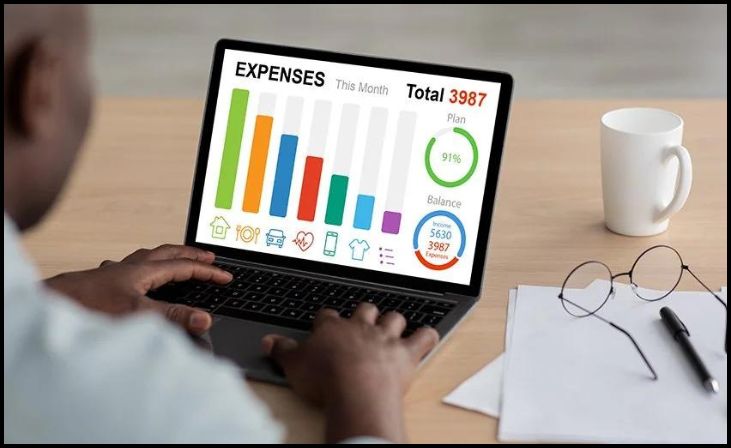First-Time Homeowner Budgeting Strategies – Entering the realm of homeownership is a monumental milestone, marking a significant step towards financial independence and stability. However, with this newfound responsibility comes the need for diligent budgeting and financial management. As first-time homeowners, navigating the complexities of household expenses, mortgage payments, and unexpected repairs can be daunting.
This is where strategic budgeting becomes paramount. In this guide, we will delve into essential budgeting strategies tailored specifically for first-time homeowners. By understanding your financial situation, setting realistic goals, and implementing effective budgeting techniques, you can pave the way for a secure and sustainable financial future. From establishing emergency funds to managing debt and maximizing homeownership benefits, each aspect of budgeting will be explored in detail.
Whether you’re a novice or seasoned budgeter, this guide aims to equip you with the knowledge and tools necessary to navigate the challenges of homeownership with confidence and fiscal prudence. Together, let’s go out on this path to financial empowerment.
First-Time Homeowner Budgeting Strategies
Track Your Expenses:

Begin by documenting every expense, from utility bills to grocery purchases. Utilize budgeting apps or spreadsheets to streamline this process, categorizing expenditures for clarity. Regularly review your spending habits to identify areas where you can cut back or adjust.
Also Read – Effective Ways To Increase Home Security On a budget
Create a Comprehensive Budget:
Draft a detailed budget outlining all anticipated expenses related to homeownership. Include categories such as mortgage or rent payments, insurance premiums, property taxes, utilities, maintenance costs, and discretionary spending. Factor in irregular expenses like annual property taxes or bi-annual insurance payments.
Emergency Fund:
Establishing an emergency fund is critical for unforeseen repairs or financial setbacks. Aim to set aside a portion of your income each month until you have accumulated three to six months’ worth of living expenses. Keep these funds easily accessible in a high-yield savings account or money market fund.
Prioritize Maintenance:
Regular maintenance is essential for preserving the value and functionality of your home. Allocate funds in your budget for routine tasks such as HVAC servicing, plumbing inspections, roof maintenance, and landscaping. Ignoring upkeep might result in expensive repairs or a decline in the value of your house.
Energy Efficiency:
Invest in energy-efficient upgrades to reduce utility costs and minimize environmental impact. Consider replacing outdated appliances with ENERGY STAR certified models, upgrading insulation, sealing air leaks, and installing programmable thermostats. Conducting a home energy audit can pinpoint areas for improvement and guide your investments.
Comparison Shopping:

Don’t settle for the first quote you receive for home services or repairs. Take the time to research multiple providers, comparing prices, services offered, and customer reviews. Negotiate with vendors to secure the best possible rates, especially for recurring services like lawn care or pest control.
DIY when Possible:
Learning basic home maintenance skills can save you money on labor costs and empower you to tackle minor repairs yourself. Invest in quality tools and educational resources, and start with simple projects like painting, caulking, or replacing hardware. However, recognize your limitations and know when it’s best to hire a professional to avoid costly mistakes.
Plan for Home Improvements:
Budgeting for future renovations or upgrades requires careful consideration of your financial goals and priorities. Identify areas of your home that require attention or could add value, such as kitchen or bathroom updates, landscaping enhancements, or energy-efficient upgrades. Research costs, obtain multiple quotes, and create a savings plan to fund these projects over time.
Review and Adjust Regularly:
Your budget should evolve with changes in your financial situation and home expenses. Schedule regular reviews to assess your progress, track spending trends, and identify areas where adjustments are needed. Consider reallocating funds to accommodate unexpected costs or shifting priorities.
Seek Professional Advice:

If you’re struggling to manage your finances or navigate homeownership responsibilities, don’t hesitate to seek guidance from financial advisors or housing counselors. They can provide personalized recommendations, help you develop a sustainable budget, and offer resources for homeownership education and assistance programs. Building a support network of professionals can alleviate stress and empower you to make informed decisions about your home and finances.
Conclusion
Conclusion: In conclusion, effective budgeting is the cornerstone of successful homeownership. By prioritizing financial goals, tracking expenses, and adapting to changing circumstances, first-time homeowners can achieve stability and security.
Remember to regularly review your budget, seek professional advice when needed, and remain proactive in managing your finances. With dedication and foresight, you can navigate the complexities of homeownership with confidence and pave the way for a prosperous future. Here’s to your continued success and financial well-being as a homeowner!
FAQs
How much of my income should I allocate towards housing expenses?
As a general rule of thumb, aim to spend no more than 30% of your gross income on housing expenses, including mortgage payments or rent, property taxes, insurance, and utilities.
Should I prioritize saving for an emergency fund or paying off debt first?
It’s advisable to prioritize building an emergency fund initially to cover unexpected expenses. Once you have a safety net in place, focus on paying off high-interest debt to reduce financial stress and save on interest payments.






